Table of Contents
Embarrassment seems to be one of the most common sentiments that follow toddler biting. Parents also tend to feel a flood of embarrassment, shock, and consternation when their child bites. Despite how awful it seems to have your child bite you or another child, a lot can be done to understand the source of toddler biting, reduce it, and, eventually, stop it altogether.
Why does my toddler bite?

Toddlers may bite for a myriad of reasons. These can go from physical discomfort to emotional dysregulation. It’s important to know that biting is not always a manifestation of aggressive behavior. The cause can be any or some of the following:
They lack language skills
Many young children’s thoughts are more complex than their expressive language. Because of this, they may bite because of the dissonance between racing thoughts and their inability to express them.
They can’t express their big feelings.
Though this is similar to lacking language skills, it could be that even the most verbose little ones feel so overcome by emotion that they lash out and bite.
They are curious.
Some young children simply don’t know what will happen when they bite. Then, when they get a reaction, they want to experiment and see if it will happen again.
They have a sensory need for oral stimulation.
Toddlers experience the world primarily through their senses, and the mouth is a powerful tool for exploration. Biting allows them to investigate textures, tastes, and the physical properties of objects. It’s like their way of saying, “I wonder what this feels like!” So, if they nibble on toys or even their friends, they’re essentially on a sensory adventure.
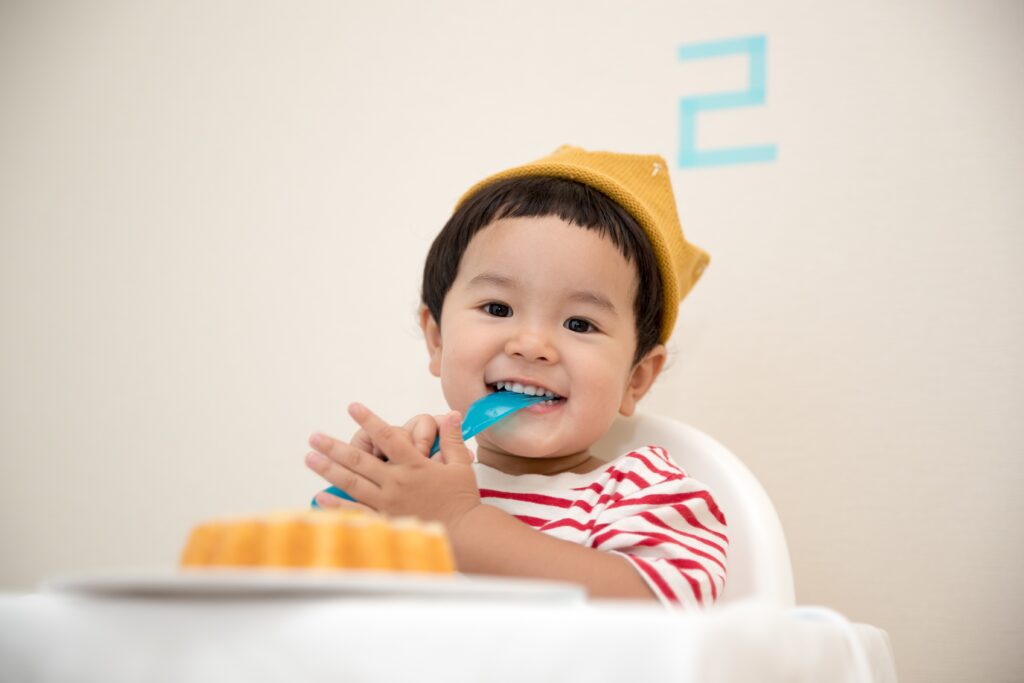
They are teething.
One of the most common reasons toddlers bite is teething. When those tiny teeth debut, the gums can get sore and itchy. Biting provides a counterpressure that can help relieve pain. If you notice your little one biting on objects or even themselves during teething, it’s a sign they’re trying to soothe their achy gums.
They are overstimulated.
Just like adults, toddlers can get exhausted. When they’ve had a long day, skipped a nap, or experienced disrupted sleep, they might not have the energy to handle their emotions as well as they usually do. This tiredness can lead to frustration, irritability, and poor self-control. Biting may become a way for them to cope with these feelings.
They crave a more rough-and-tumble play.
Rough and tumble play is vital to a child’s growth and development. It’s a way for them to explore their physical capabilities, practice self-control, and develop critical social skills. In the midst of all the excitement and physical interaction, a child might get carried away or become overwhelmed by their emotions. Biting, for some, can be a way to communicate a need to slow down, take a break, or assert themselves when they feel outnumbered or outmatched.
Positive Behaviors That Can Stop Toddler Biting

Remember that toddlerhood is a phase of rapid growth and development. One day, they’re crawling on the carpet, then suddenly they’re off to biting anything they can sink their teeth into. Most of the time it is a temporary behavior that you can manage using the following tips.
Start by staying calm.
When I yell, chastise, or get agitated, I put my young children into hyperarousal, causing stress hormones to course through their veins. This makes listening and learning next to impossible. In the heat of the moment, parents should take a deep breath, remain calm, and be matter-of-fact. For example, in a neutral voice, say, “We don’t bite.”
Pay more attention to the child who was hurt.
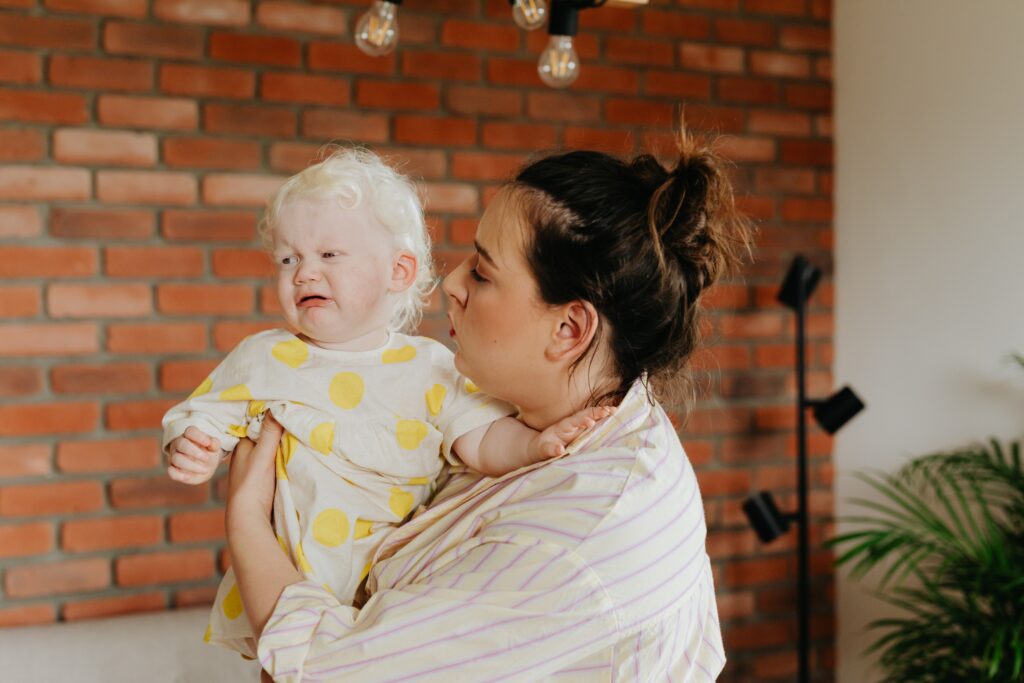
Related reading: How to Discipline a Child: Why science says this is the best approach
Sometimes, children act out to get attention, even if the attention is negative. As such, parents should withdraw positive reinforcement and focus on the child who was hurt. (This, of course, is also smart because the child who was hurt should be attended to.) After you’re sure the other child is okay, focus on your toddler and what needs to be done to correct her behavior.
Don’t punish biting.
Biting incidents provide valuable opportunities for teaching and learning. Instead of punitive measures, parents can use these moments to help their young children understand why biting is not appropriate. Punishment also doesn’t get to the root of the problem. It may stop the behavior temporarily, but it doesn’t help toddlers develop positive behavior.
How to Assess and Address Toddler Biting
Every child is unique, and what works in one situation may not apply to another. Assessing the situation helps you tailor your approach for your toddlers to stop biting. It would be best to foster a supportive and communicative environment that encourages good behavior.
Understanding the Trigger to Toddler Biting
The first step in addressing toddler biting is investigating what led to it in the first place. Toddlers bite for various reasons, such as frustration, overstimulation, or a need for attention. By taking a moment to assess the situation, you can discover what might have triggered the biting behavior.
Differentiating Intent
Not all biting incidents are the same. Some toddlers might bite accidentally during play, while others may do it intentionally to express themselves, assert control, and protect their personal space. It can help to determine whether the biting was a spontaneous act or a deliberate one.
Responding Appropriately to Toddler Biting
Once you’ve gotten to the bottom of things, you’re better equipped to respond in a way that addresses the specific cause of the biting. Ask yourself, “Was my child biting out of frustration?”. If yes, focus on teaching them alternative coping methods.
Avoiding Triggers
Identifying potential triggers or patterns in your child’s behavior can create an environment that reduces the likelihood of biting. Knowing what to avoid allows you to take more proactive steps, especially during playdates or family gatherings.
How to Assess the Situation
Here are some practical steps to help you assess the situation when a biting incident occurs:
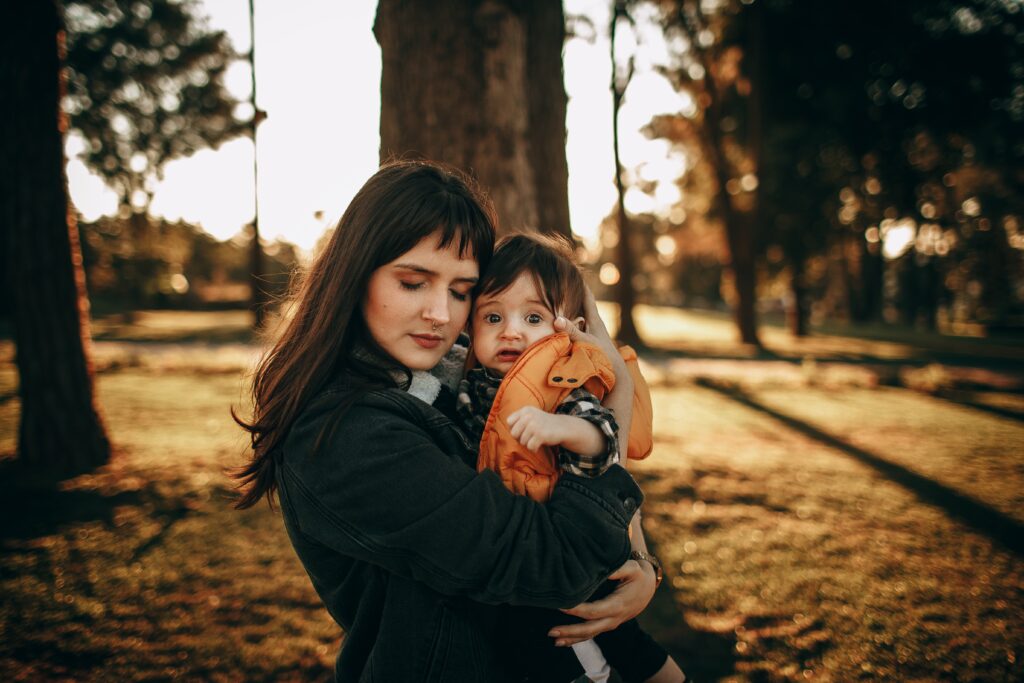
Remain Calm: Pause for a minute and compose yourself.
Observe: Watch out for signs of frustration, excitement, or overstimulation.
Ask Questions: If your child is verbal, ask about their feelings and why they bit. If they can’t express themselves verbally yet, offer comfort and reassurance.
Consider Context: Think about the environment and circumstances. Was it a crowded playdate, or was someone invading their personal space?
Seek Solutions: Tailor your next steps to getting to the root of the biting and work on solutions together.
Redirecting Your Child’s Behavior to Prevent Toddler Biting
Look for constructive ways for the child to meet his needs without biting. Instead of reacting to biting incidents, explore proactive strategies that can help reduce the likelihood of such behaviors.
Offer Safe Chew Items.
If you think your child is biting because she needs something to teethe on or craves oral stimulation, offer safe teething/ chew items.
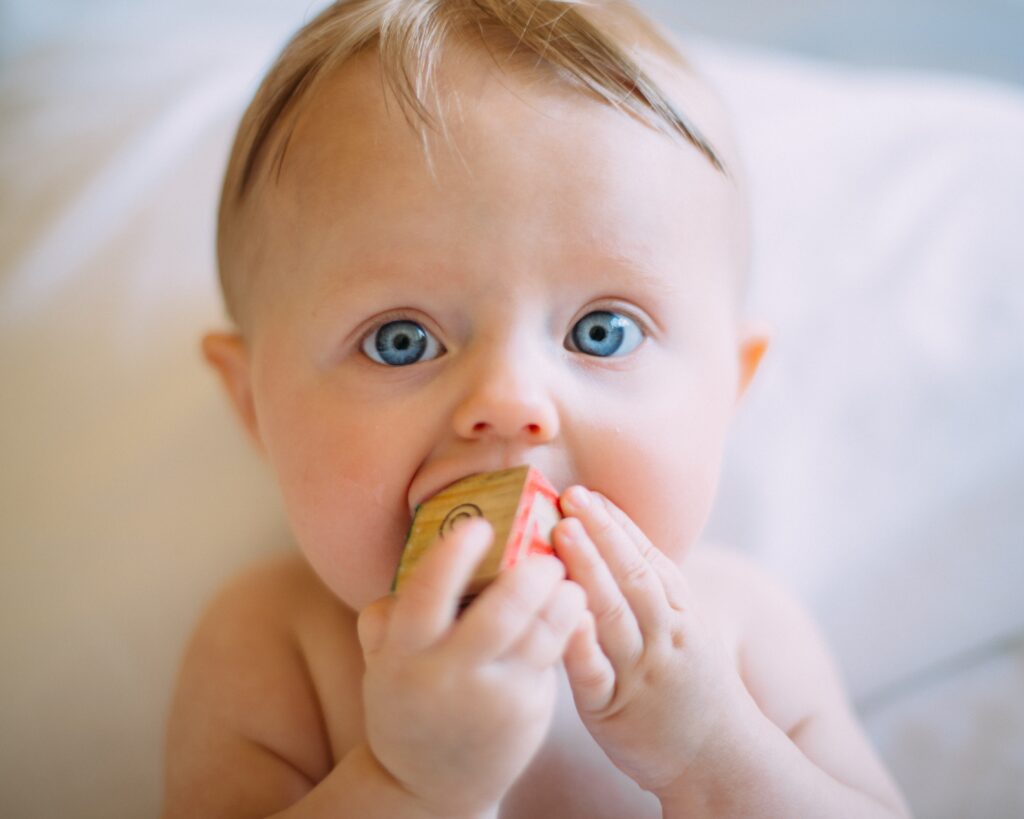
Keep the Fun Going.
Biting may be because the child needs more rough-and-tumble play. This creates a context for children to learn how to engage in physical play that doesn’t hurt. This is because wrestling with adults, the adult teaches children when to back off and what limits should be. Roughhousing is meant to be fun; therefore, the children engaging in it are motivated to keep going.
Be Their Communication Coach
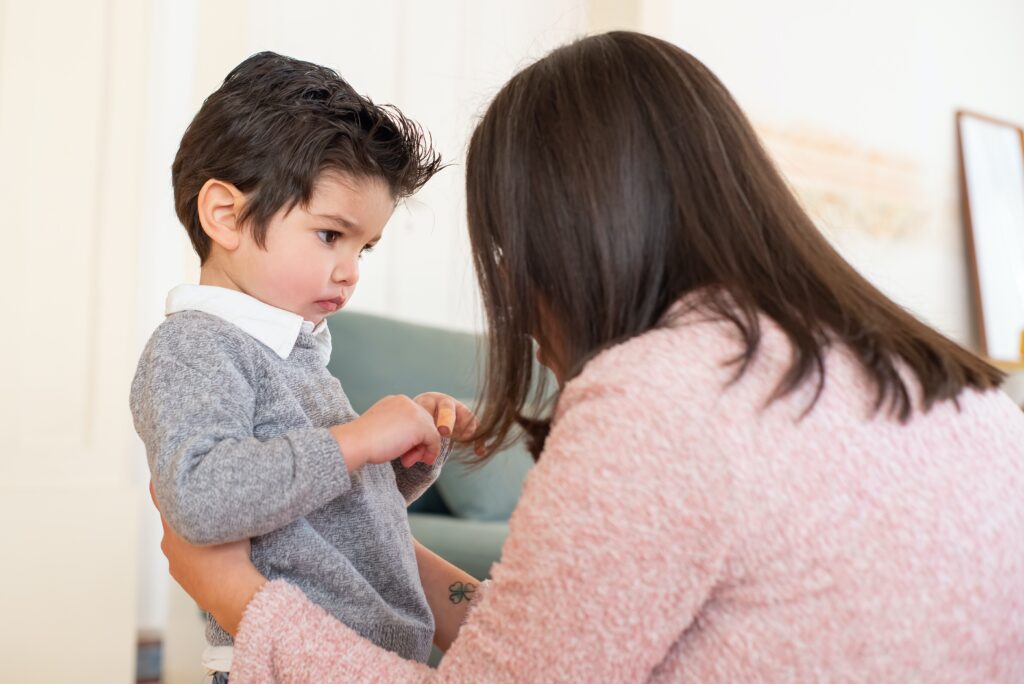
If he appears to lack the language to express his feelings, coach him on what to say. When my three-year-old is overwhelmed, I tell him to use his cupcake breath. This is where he pretends he’s holding a cupcake. Then he takes a deep breath blows an imaginary candle out. Then I’ll say something like, “Say to your brother, ‘I’m mad you kicked my blocks!'”
Other ways to redirect big feelings include saying:
- “We don’t bite. Say, ‘I need space.'”
- “You don’t bite. Tell Jackson, ‘Toy back, please.'”
- “Ouch! That hurt. Mouths are for chewing not biting. If you want mama, say, ‘Mama.”
Promote Emotional Regulation
Help your child recognize and understand their emotions. Use stories, books, or simple emotion cards to illustrate different feelings. This empowers them to identify and express their emotions healthily.
Timeouts or time-ins can also be a good way to work through the big feelings, reset, and then be ready to learn what to do.
Related reading: Time-ins vs. Timeouts: Find out what’s best for your family
Teach Coping Strategies
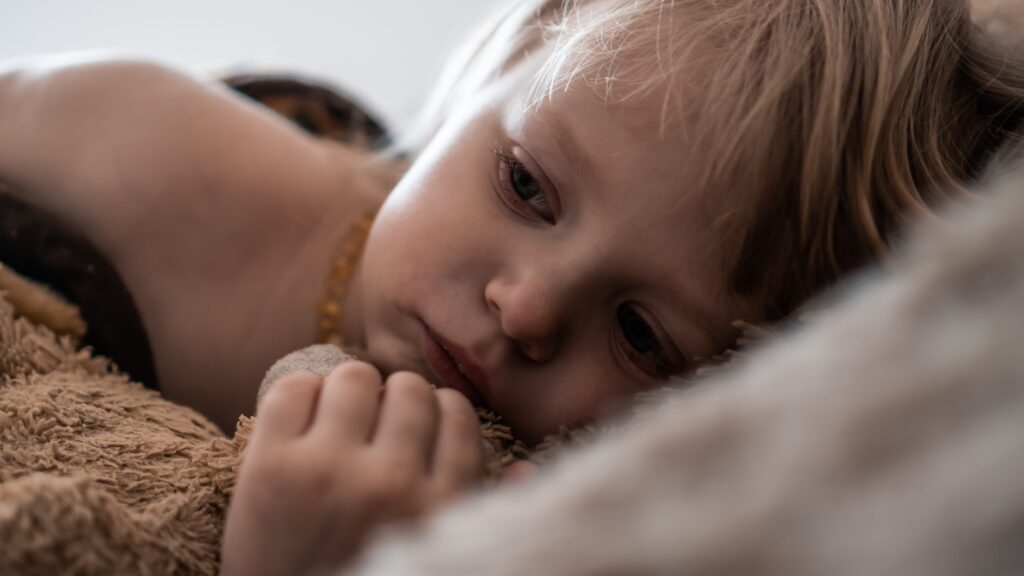
Deep breathing, counting to ten, or hugging their favorite teddy or blankie when upset can help kids manage their emotions. These soothing ways can help them self-regulate instead of resorting to biting.
Stay Calm
If the toddler is biting to get a reaction, again, stay calm, but be firm and honest. For instance, “Biting hurts. Ouch! Teeth are not for biting.”
Ensure Adequate Rest and Good Food
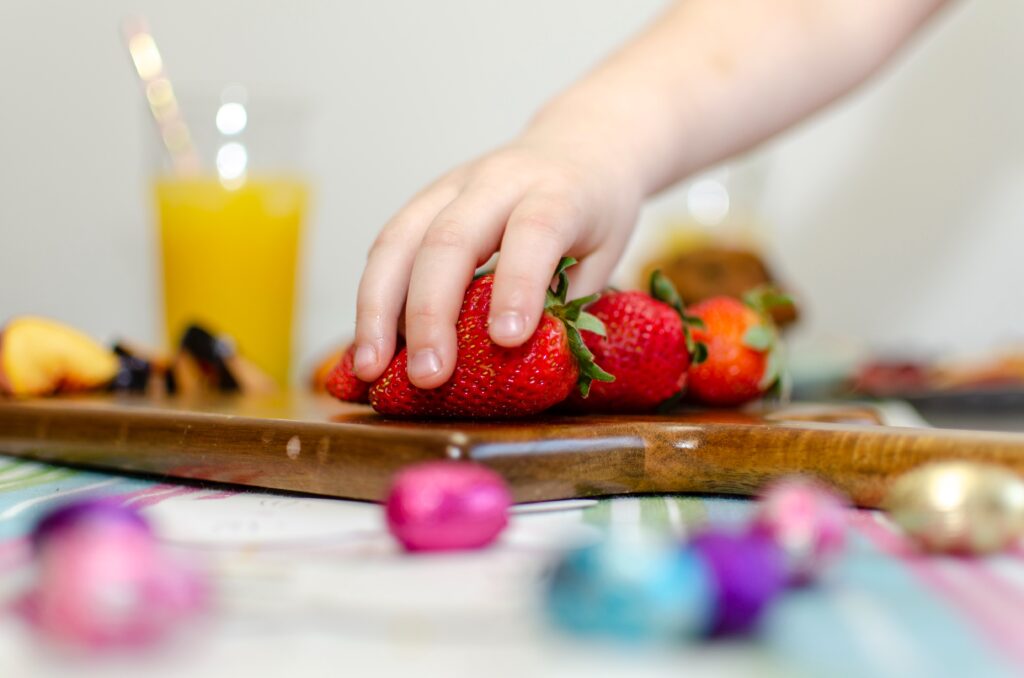
Ensure your child gets enough sleep according to their age. A well-rested child is less likely to be cranky, stressed, or frustrated.
It would also help to provide balanced and nutritious meals to younger children. We all know hunger can make anyone, even us parents, irritable. Healthy snacks and regular mealtimes can help maintain stable blood sugar levels, preventing meltdowns and tantrums.
Arrange Playdates
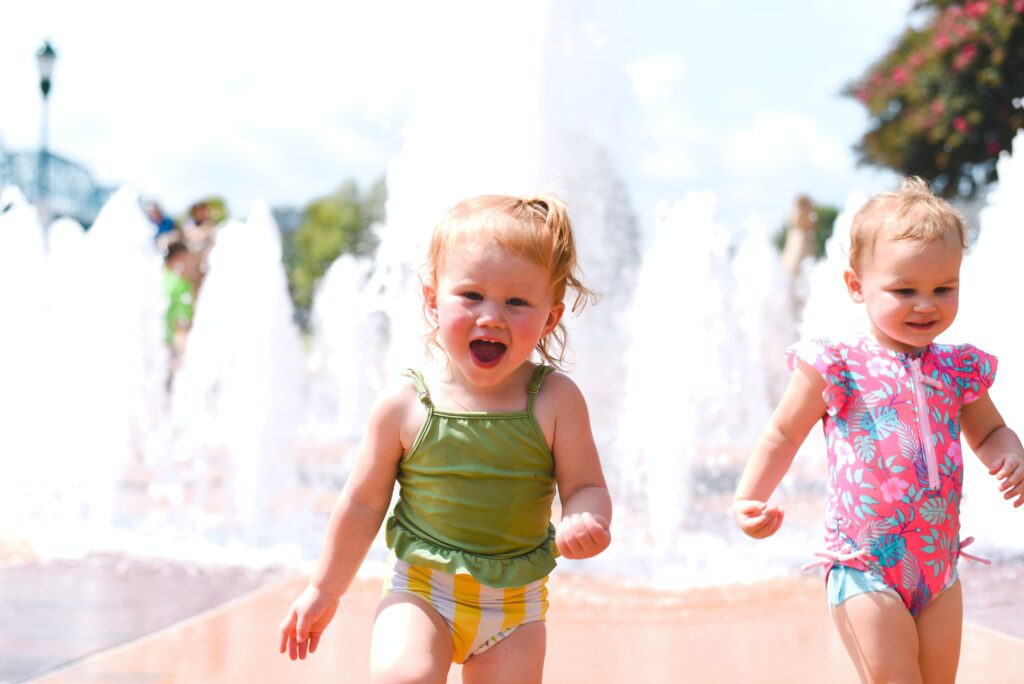
Playdates and group activities can teach your child essential social skills, such as sharing, taking turns, and resolving conflicts peacefully. However, it doesn’t end with arranging these get-togethers. It’s best if you’re present to supervise, especially now that you’re figuring out why they bite.
It would be a good idea to provide activities to keep them busy. Tinkering with their hands might take their mind off biting their playmate.
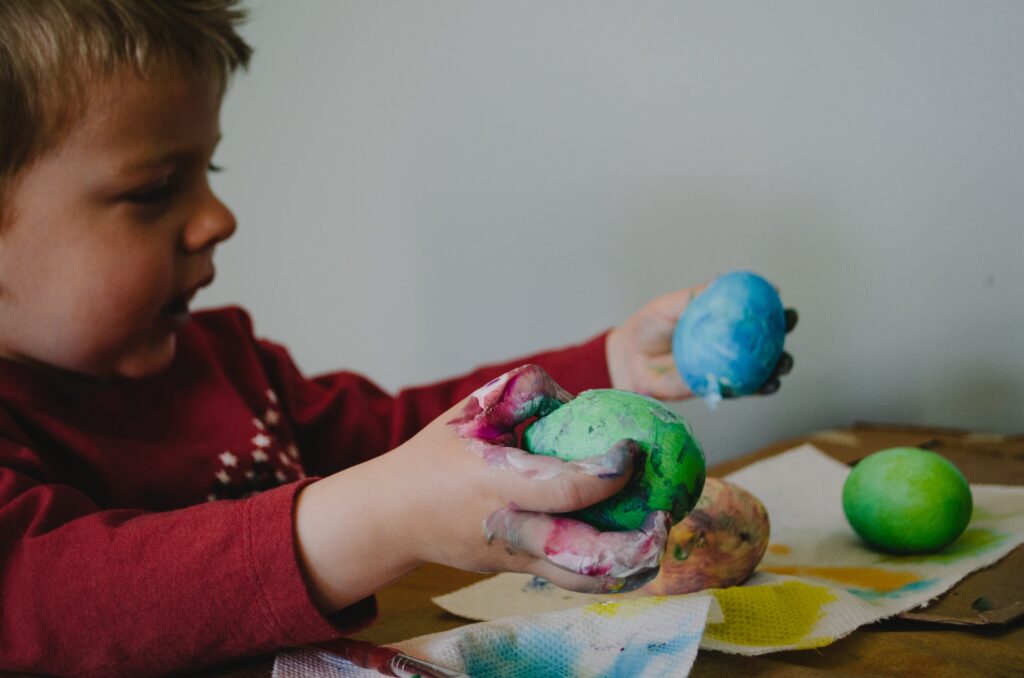
Establish Routine
Toddlers thrive on routine and predictability. Follow a daily routine that includes mealtimes, naptimes, and playtimes. This consistency provides a sense of security and helps children know what to expect.
Praise Efforts
Acknowledge your child’s good behavior. A simple “It was generous of you to share your blocks” would encourage them to use healthy coping mechanisms.
Seek Professional Help if Needed

If your child’s biting behavior continues after exhausting all efforts, consider consulting a pediatrician or child development specialist.
The doctor may test for autism spectrum disorder. Children with this condition find it challenging to meet their oral sensory needs. It can often lead to frustration and seemingly aggressive biting behavior. Your child can receive tailored guidance and interventions to address underlying issues by going to a professional.
Read books and tell stories about biting.

Creating social stories can be a powerful way to teach a child not to bite. Basically, you construct a story (can be pictorial) depicting what happened leading up to the bite, how biting hurts, and how to act instead.
There are also several great books about toddler biting, including:
Books about big feelings, not necessarily biting:
Is Toddler Biting a Sign of Underlying Issues?
Another way of addressing toddler biting is to explore the possible underlying causes. Toddlers often struggle to communicate their needs and emotions adequately. So, sometimes, they resort to biting when words fail. Frustration, teething discomfort, and overwhelming emotions can trigger this behavior. It would help if parents understood the cause-and-effect between biting and a toddler’s feelings.
Considering the Connection Between Biting and Autism Spectrum Disorder
Suppose the behavior continues after trying all the tips and tricks to stop biting. In that case, it might be time to consider the potential link between biting and Autism Spectrum Disorder (ASD). ASD, a developmental disorder, can affect a child’s behavior, social interactions, and communication.
Some children with ASD may struggle with sensory sensitivities, making them more prone to biting to cope with overwhelming sensations. Additionally, children with ASD may face challenges in expressing themselves verbally. Sometimes, when they get frustrated, they bite. It’s crucial to seek professional guidance if you suspect your child may be on the spectrum.
Seeking Guidance from a Behavioral Specialist
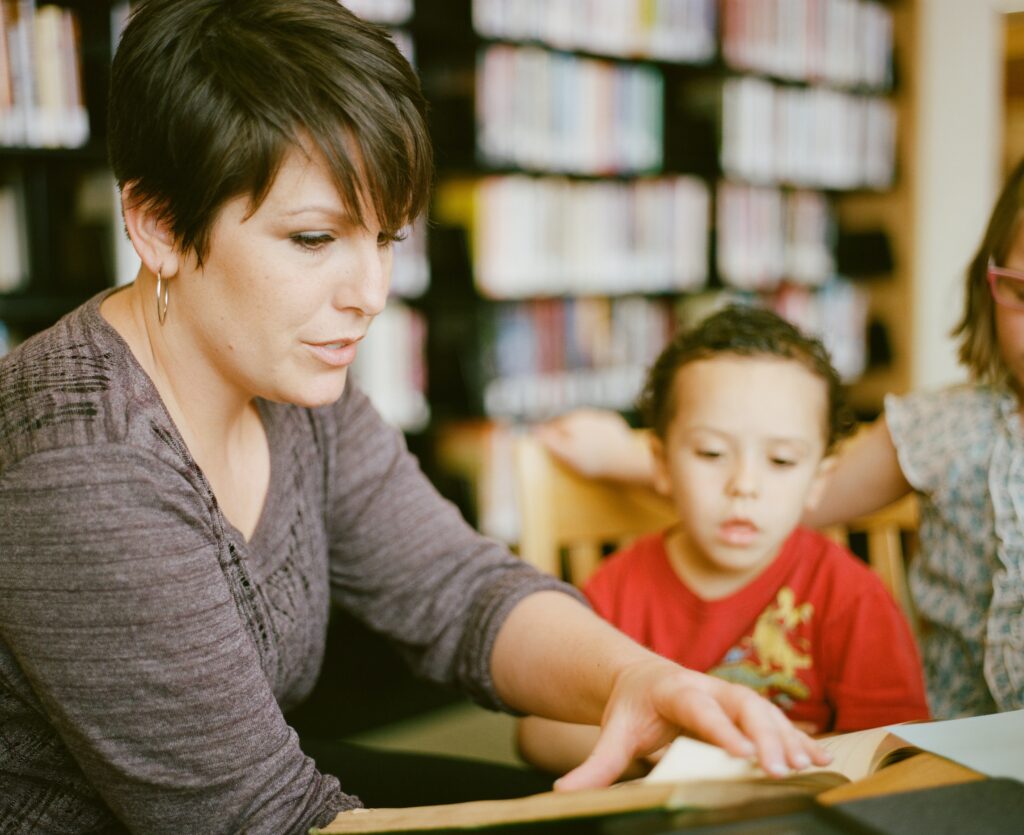
Some parents often wonder if they can handle the biting situation by themselves. While this may be the first move, seeking guidance from a behavioral specialist can provide invaluable insights. Their expertise can identify underlying issues that only a trained eye can assess. They can also collaborate with parents to develop tailored approaches that promote positive behavior and self-control.
Can Child Find Programs Address Toddler Biting?
Have you heard about Child Find programs from your local school? Not many people may be familiar with it. Still, it plays a crucial role in identifying and supporting children with developmental concerns early on.
If you suspect your child’s biting behavior has an underlying developmental issue, it would help to connect with a Child Find program in your area. They can assess and refer you to resources and interventions to help your children thrive.
A final note
Suffice it to say biting was a short-lived stage of my life. Based on my mom’s recount, I didn’t bite anyone at preschool after that incident. And thankfully, over thirty years later, Lindy and I are eh okay.
If you are trying to teach your toddler not to bite, remember that learning a new habit takes time. Be patient with them. Offer them an alternative to biting based on the why behind the biting. Lastly, help your child move on from the experience. Explain the consequences of their actions and help them find another outlet that doesn’t involve their teeth!
If biting endures outside of the toddler years, please consult a pediatrician or family doctor. It could be a sign that the child may need additional help with developmental needs.
Like this post? Click on the image below to pin it for later!
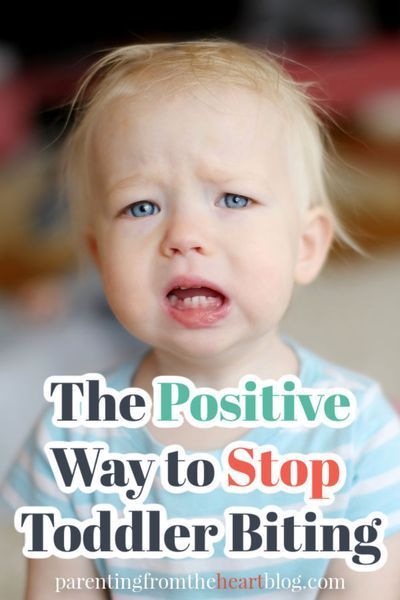







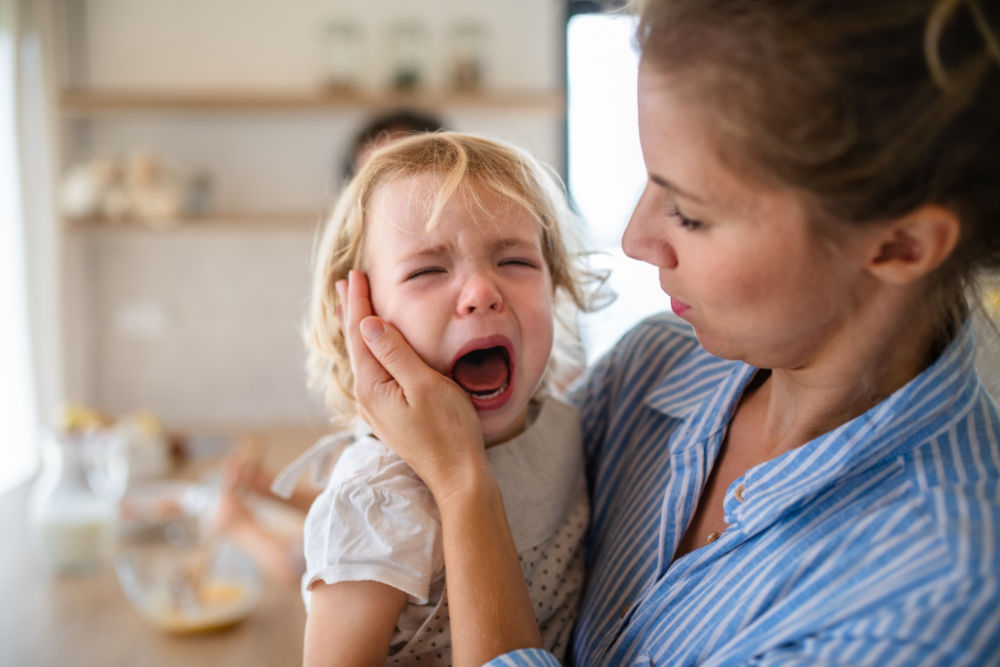
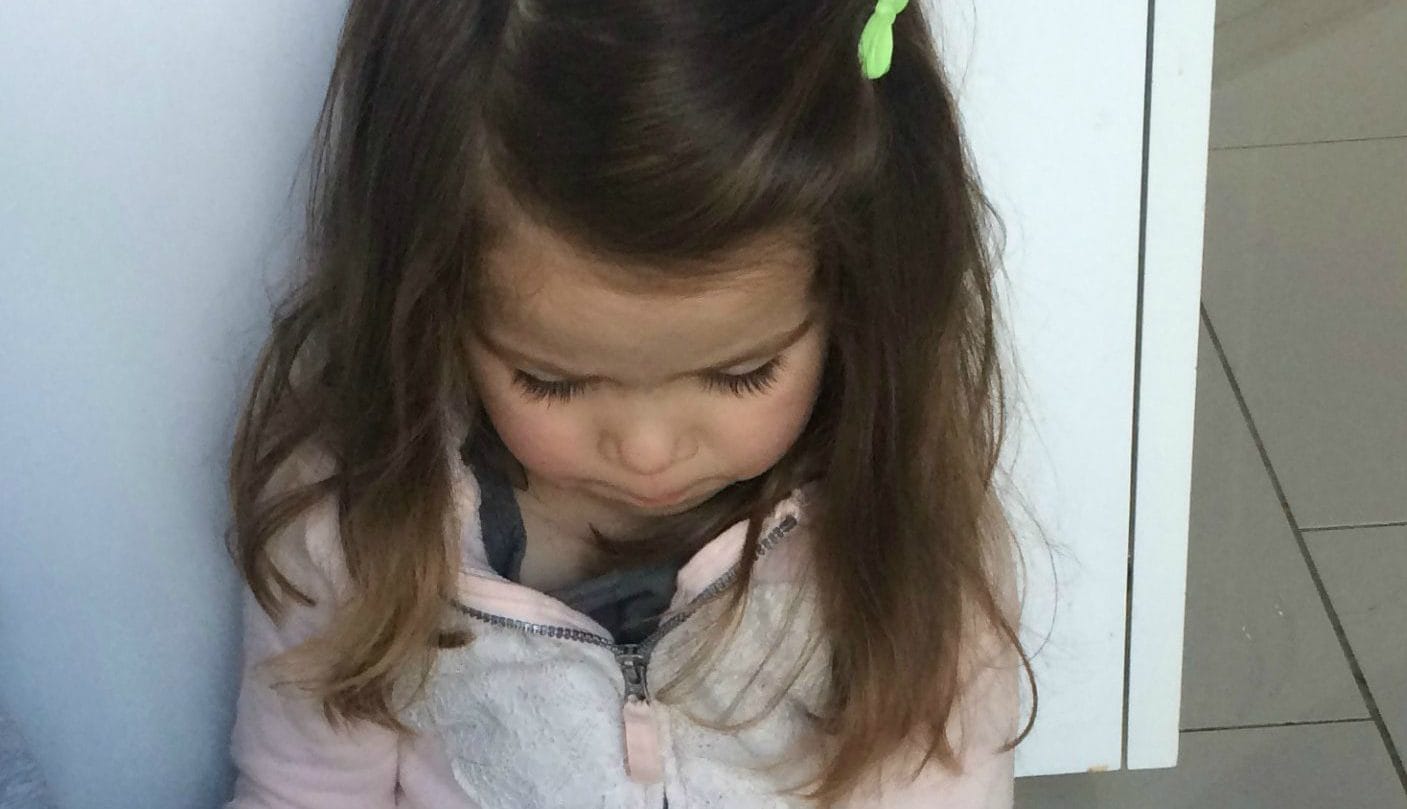
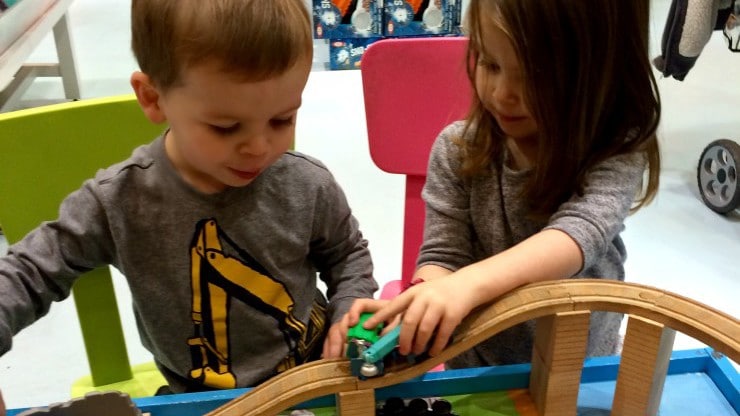
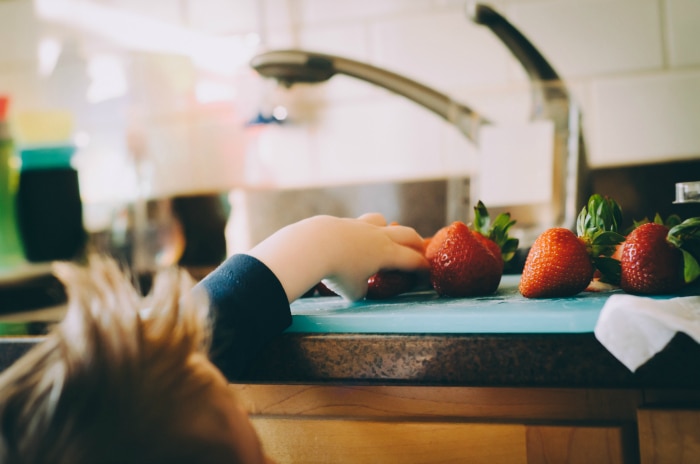
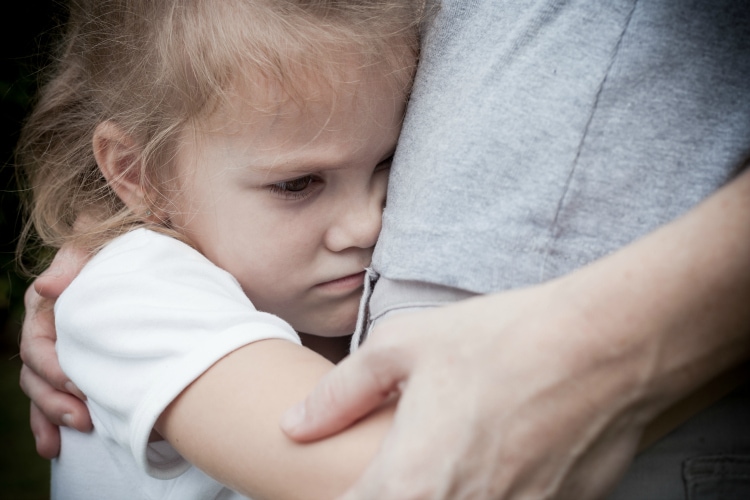
Love this blog and the strategies presented! Love the thoughtfulness and approach!
Lori Abosch (Child Behavior Specialist)
http://www.loriabosch.com
My kid bites a lot. This was really helpful! Thanks
https://tinytwigorganic.com/